-
•
•
111 responses
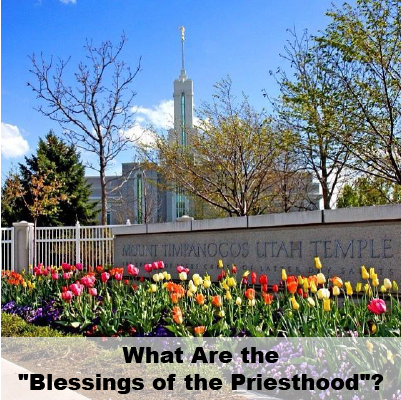
Ordain Women isn’t asking to have “access to the the ordinances all need to return to God” — something both women and men clearly already have. Rather, they are asking to be ordained to the priesthood and to be allowed to administer those ordinances as men do. Read More
-
•
•
78 responses
There is no shortage of interviews, essays, rants, and diatribes that you can read on the topic of women in the LDS Church generally or on Kate Kelly’s excommunication specifically. Read More
-
•
•
8 responses
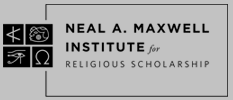
What I tend to lack in quality, I hope to make up for with quantity. And what I lack in training and credentials, I hope to gather and borrow. In many ways, these maxims have guided the time I’ve invested in a project called the Mormon Theology Seminar. Read More
-
•
•
5 responses

I find the story of the woman with the issue of blood, found in all three Synoptic Gospels, both odd and beautiful. Like most of the recipients of Christ’s miracles, she excites sympathy within me. Twelve years is a long time to be sick, especially with an illness that renders you and anyone who touches you perpetually unclean. She must have been lonely. It makes me wonder how many times she did get touched during those years–how many people braved the social and religious taboo to offer her a bit of human care or comfort. Did she have a family?… Read More
-
•
•
14 responses
The latest move by the Church on the environmental front is the production of a beautiful, 94 second spot on the Mormon Channel. Read More
-
•
•
63 responses
I am saddened by Kate Kelly’s excommunication. I wish that events had played out differently. Excommunication in this case strikes me as the worst outcome for all concerned, although obviously my opinion on this matter does not – and should not – matter. I believe her when she says that the decision is extremely painful for her and her family. They have my sympathy and my prayers. I do worry that part of the public meaning that she and her supporters are assigning to her excommunication is both inaccurate and potentially destructive. In her letter to her bishop, she wrote:… Read More
-
•
•
6 responses
Consider the structure of 1 Nephi 1: Read More
-
•
•
5 responses

When the Lord wants to ‘refresh’ the gospel, He brings forth a book, it seems. The Restoration was triggered with the Book of Mormon, for the Reformation the first printing of the bible in German was indispensable and Christianity became something else than a Jewish sect the moment Paul’s letters and the early gospels came together as the core of what later would become the New Testament. We as LDS are a Religion of the Books, and that plural irks our fellow Christians to no end: it should be one Book. However, if they would read their own Book well,… Read More
-
•
•
90 responses
The disciplinary council for Sister Kate Kelly met yesterday. Today, the council announced that they had decided to excommunicate her, for “conduct contrary to the laws and order of the Church.” This result is very troubling. I have serious doubts about the substantive result here. I will set them aside for this post and instead focus on an important procedural matter: Sister Kelly was never informed that she was to be tried for “conduct contrary to the laws and order of the Church,” was never given a chance to defend herself from that charge, and was ultimately excommunicated for an… Read More
-
•
•
28 responses
I don’t know the answer to this question. Let me suggest some possibilities: Perhaps the Brethren are worried that publishing the Handbook will encourage people to treat it as a legal text. There are two possible problems with this. It might then encourage people to use deviation from the Handbook to attack priesthood leaders, when the Handbook is merely intended to orient them in particular ways not necessarily limit their ability to deviate. Alternatively, treating the Handbook as a legal text might discourage members from approaching issues prayerfully and flexibly rather than legalistically. By keeping it private, the thinking might… Read More
-
•
•
41 responses
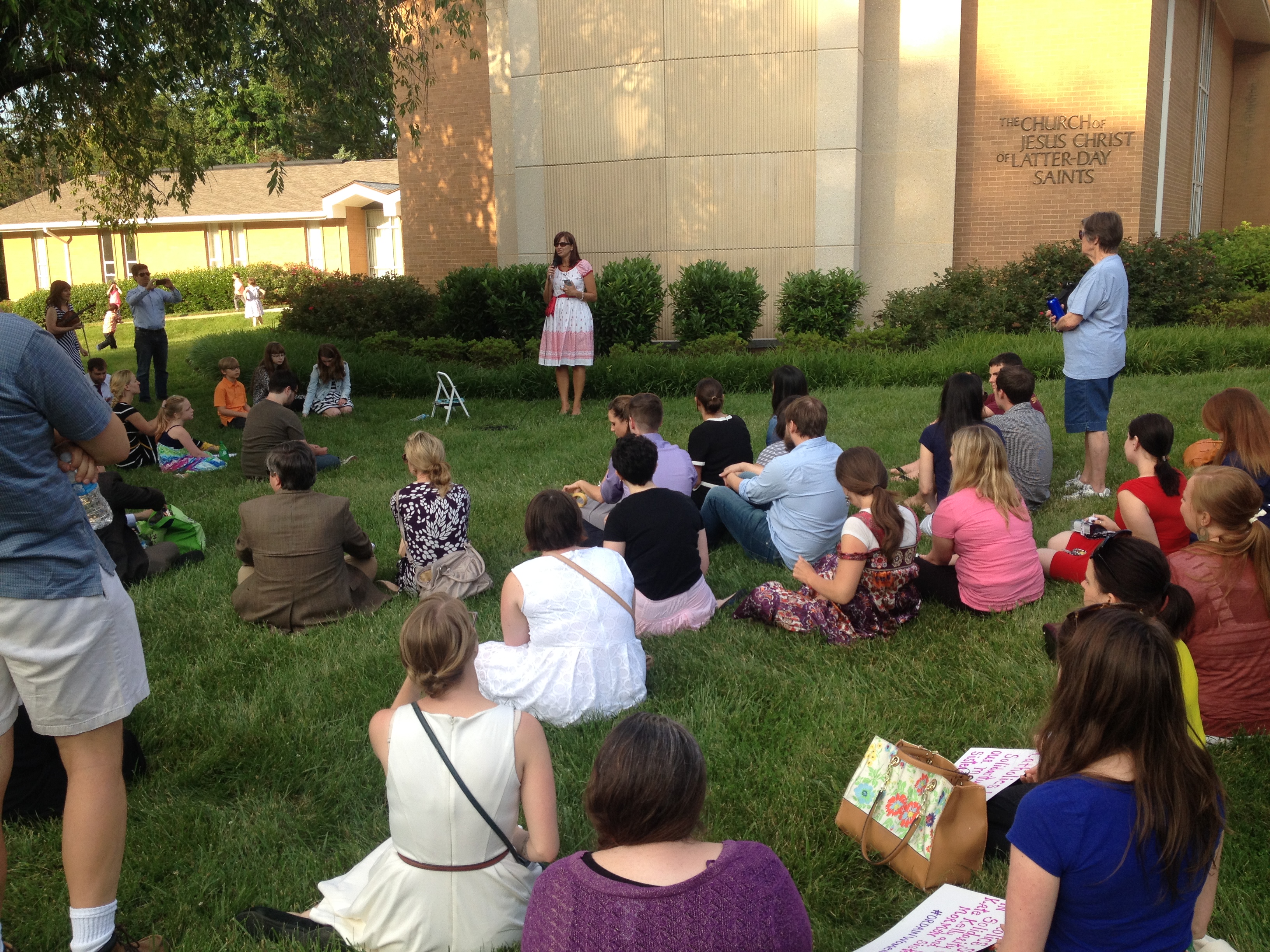
One of my most recent posts was an attempt to honestly explore (or at least ask) the question: “How do faithful members collectively petition our prophets to petition the heavens?” The scriptures and the early days of our church are replete with faith-inspiring examples. How do we do it now that we’re millions strong? The answer – as the events of the last two weeks have thrown in dramatic relief – is that we don’t have one.[1] Many others have noted the fact of Kate Kelly’s disciplinary council arising from (as many think) her aggressive tactics courting media and engaging non-Mormons on… Read More
-
•
•
21 responses
Karen Hall has an interesting post on church courts that’s worth reading. Her basic point is that church courts fail to comply with some rule of law norms. I would quibble with some of her points. For example I think she slips from the idea of rule of law to the narrower idea of an adversarial judicial process involving juries. Most of the world, however, uses the civil law system which has no juries and uses an inquisitorial rather than adversarial structure. (I do not mean inquisitorial to be pejorative. It simply means a system where the judge actively inquires… Read More
-
•
•
12 responses
We are pleased to post the last installment of our Q&A with Armand Mauss, LDS author and scholar. See Part 1 for a full introduction and the first set of questions and answers, and Part 2 for the second set. 9. In the third chapter of your recent book Shifting Borders and a Tattered Passport, you discuss how as a graduate student you encountered the theory “that truth or reality is socially constructed,” which you contrasted with an “absolutist or essentialist ontology” that you had developed as a young Latter-day Saint. At the end of the chapter, you reflected back… Read More
-
•
•
100 responses
On Tuesday, Ally Isom, Senior Manager of Public Affairs with the LDS Church, encouraged listeners to have respectful conversations about their concerns with and faith in the Church. Read More
-
•
•
4 responses
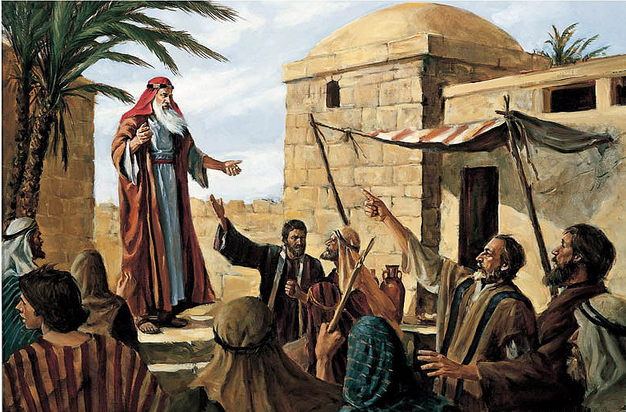
Last week I started reading the Book of Mormon again from the beginning. The first day, I made it through 1 Nephi 1. The second day, I made it through 1 Nephi 2:1. For behold, it came to pass that the Lord spake unto my father, yea, even in a dream, and said unto him: Blessed art thou Lehi, because of the things which thou hast done; and because thou hast been faithful and declared unto this people the things which I commanded thee, behold, they seek to take away thy life (1 Nephi 2:1) “Behold,” says The Lord, “They… Read More
-
•
•
3 responses
For anyone in or near London this Friday: Read More
-
•
•
22 responses

Isabelle Collin Dufresne, known as Ultra Violet, died this morning after a battle with cancer. She was 78. Dufresne was perhaps the most famous Mormon artist that most Mormons haven’t heard of. But at the height of the Pop Art movement and Andy Warhol’s Factory, Ultra Violet was well known in the New York art scene, and she is still well remembered for her memoir of that time, Famous For 15 Minutes: My Years with Andy Warhol. Read More
-
•
•
4 responses

Two of the most inspiring parts of life to me are seeing new places and learning new things. So it’s no surprise that I’ve long been fascinated with the story of Eve, the woman who lived in Paradise and gave it up to see and experience things she could never have imagined, and learn things that would change her forever. The traditional religious line has been to condemn Eve for her fateful choice and blame her for the evils of our fallen world. But as Mormons, we think differently. As Orson F. Whitney described it, the Fall was a fall… Read More
-
•
•
14 responses

In statistics, a popular approach is to think of the statistician as having a set of views (“priors” or “prior distributions”) that are based on past evidence and when new evidence comes in, one integrates that information in and forms a new set of beliefs (“update your priors”). So, for example, if I think I am brilliant in math, a series of poor math test grades even after studying might convince me to reassess that belief. Alternately, I could stick with my priors and treat the new evidence as flawed or not informative because I am mad or upset. This is especially… Read More
-
•
•
37 responses

“Will no one rid me of this turbulent priest?” According to popular tradition, this is the line that King Henry II blurted out after repeated disagreements with Thomas Becket, Archbishop of Canterbury. (There are several variations, such as “who will rid me of this meddlesome priest?”) Four of Henry’s knights interpreted this as a royal command and set off for Canterbury, where they slew Becket while he prayed at the altar. How should we understand the knights’ actions? Should we view them as following orders, or as acting on their own initiative? There are multiple possible interpretations. For instance, if… Read More
-
•
•
41 responses
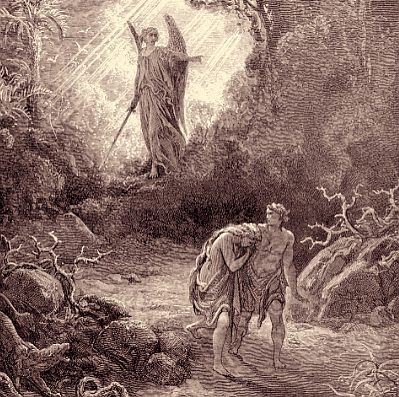
Job 1: 20 Then Job arose, and rent his mantle, and shaved his head, and fell down upon the ground, and worshipped, 21 And said, Naked came I out of my mother’s womb, and naked shall I return thither: the Lord gave, and the Lord hath taken away; blessed be the name of the Lord. 22 In all this Job sinned not, nor charged God foolishly. Job 2: 11 ¶Now when Job’s three friends heard of all this evil that was come upon him, they came every one from his own place; Eliphaz the Temanite, and Bildad the Shuhite, and Zophar the Naamathite: for they had made an appointment together to come to mourn with him and to comfort him.… Read More
-
•
•
16 responses
I leaned into the aisle and looked back. And all the way at the back of the chapel, I saw my 3 year old strolling down the aisle, wearing nothing but a Curious George t-shirt and his glory be. Read More
-
•
•
22 responses
When teaching Institute recently to a class of LDS students in our ward, I used the term ‘Latter-day Israel’ and met with a surprised silence: they had never heard the term. Yet, all of them were second generation members, born and raised in the church and thoroughly schooled in whatever the church had thrown at them, several had performed a mission and as university students (most of them) they had read their church books. Being a convert member now for almost 50 years, I suddenly realized how much the discourse on Israel had changed in the church. Maybe this is… Read More
-
•
•
2 responses
We have moved servers this weekend, and during the move the site was temporarily not able to accept any comments, nor did we have any new posts until after the move was finished. If you can see this post, then the move is complete and you can make comments normally. New posts should start appearing shortly. Read More
-
•
•
58 responses
There are certain things that we need and desire. Among these is love and sex. I conjoin two words, but I mean it to refer to a single whole, the embodied connection of affection, commitment, and pleasure that comes in the mutual giving of two people of themselves to each other. That. It’s a longing that has deep roots in biology and human experience. It seems a good candidate for a necessary component of a good life. The problem comes when that truth – that a good and complete life includes love and sex – combines with our dominant moral… Read More
-
•
•
80 responses
While it is possible that some Church leaders in the past may have been fallible, it falls to us now to follow our current Church leaders unfailingly. Read More
-
•
•
117 responses
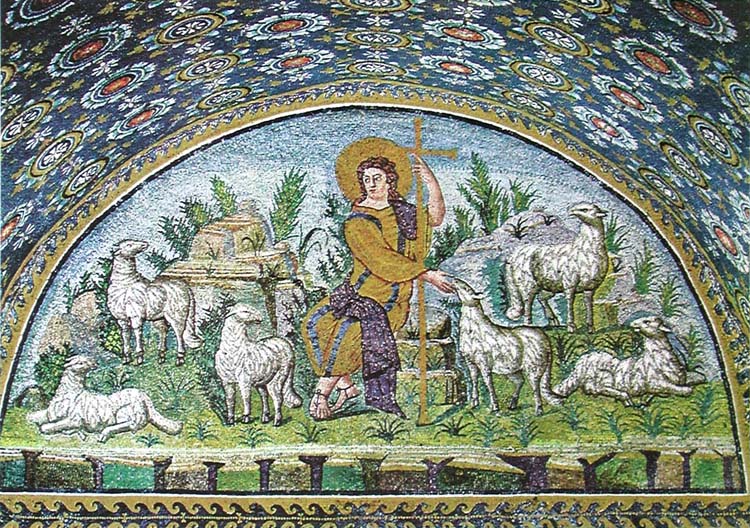
It is very common in the Bloggernaccle to talk about an exodus of members from the Church. These members are usually described as a cohesive demographic. The two examples I’ve seen most frequently are (1) young Millennials who are disillusioned by the discrepancy between real history and CES whitewashing and (2) good women whose contributions and perspectives are devalued and rejected by the institution at large. I don’t have any insider or objective data on these concerns, and so I couldn’t say where they fall on the spectrum from urban legend to imminent crisis, but I suspect the problem is… Read More
-
•
•
80 responses
As I indicated in my last post, I am very, very happy with this response from Brother Otterson, for two reasons: Read More
-
•
•
11 responses

I love the Old Testament, both as an anthropologist and as a Mormon. None of our other Standard Works has as many wonderful stories as the OT, and none raises as many questions as this longest and most complex of all Scriptures. Now that we plough our way through it in Sunday School, we noticed how hard these stories are, and even harder are the parts we skip. That has everything to do with the purpose of these tales, what I call their ‘voices’. Jonathan Green correctly reminded us in his blog that the ‘Why told’ question is more interesting… Read More
-
•
•
6 responses
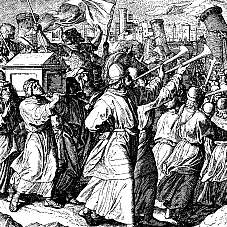
When reading the Old Testament, the essential thing to keep in mind is not This is what happened but This is what someone thought was important for later readers to remember. Read More
